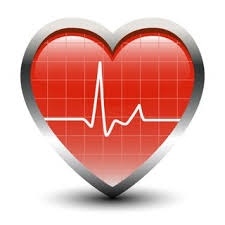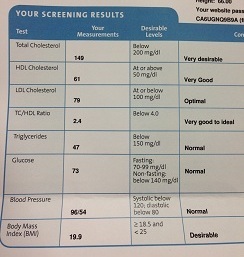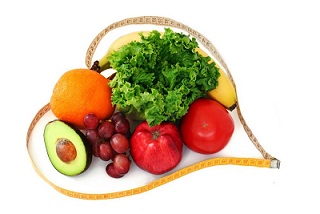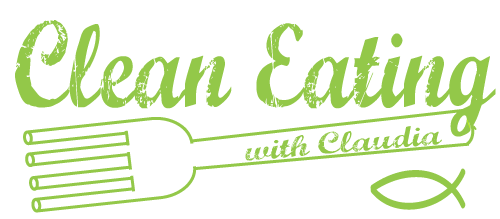In a perfect world, we’d have no hereditary diseases lurking around the corner, just waiting to creep into our lives. All would be wonderful and we could eat whatever we want and do whatever we want and not have to think about the repercussions of our dietary actions. Unfortunately, I do not live in that world and neither do you.
When I was 27 years old, I walked into my doctor’s office, he looked at me square in the eyes and asked if I was predisposed to any health conditions. Knowing that I’m Latina, he knew that there was probably a pretty good chance that diabetes and hypertension were potentially in my future. Truth be told, high cholesterol, hypertension, diabetes, heart disease, and Alzheimer’s have all affected someone in my family. WOW. All that being said, my doctor said that it was about that time that I got my numbers checked.

While I can’t recall the result of all of my numbers, what I do remember is the number 207. 207 was my total cholesterol at the age of 27 years old and I was given a list of things I should cut down on when it came to eating. That’s all it took for me to have a wake up call and while my dietary changes were not made overnight, I definitely became more conscious of what I ate. Also, during this time, my weight ranged anywhere from 140-143.
According to the American Heart Association, heart disease is the #1 leading cause of death in the world with stroke coming in a #2. Both ailments are highly preventable and a result of dietary and lifestyle choices. For me, the last thing I wanted to do was be subjected to taking daily pills as I’ve witnessed with some family members nor was I interested in having a triple or quadruple bypass anytime in the near or distant future.
So why is knowing your numbers so important? It’s recommended that adults over the age of 20 have their lipid profile checked since knowing your numbers is a great way to keep your heart healthy and minimize your risk of heart disease and stroke.
Based on the American Heart Association, here is a break down of what your cholesterol means…
LDL (Bad) Cholesterol
When too much LDL (bad) cholesterol circulates in the blood, it can slowly build up in the inner walls of the arteries that feed the heart and brain. Together with other substances, it can form plaque, a thick, hard deposit that can narrow the arteries and make them less flexible. If a clot forms and blocks a narrowed artery, heart attack or stroke can result.
 HDL (Good) Cholesterol
HDL (Good) Cholesterol
About one-fourth to one-third of blood cholesterol is carried by high-density lipoprotein (HDL). HDL cholesterol is known as “good” cholesterol, because high levels of HDL seem to protect against heart attack. Low levels of HDL (less than 40 mg/dL for men and less than 50 mg/dL for women) also increase the risk of heart disease. Medical experts think that HDL tends to carry cholesterol away from the arteries and back to the liver, where it’s passed from the body. Some experts believe that HDL removes excess cholesterol from arterial plaque, slowing its buildup.
Triglycerides
Triglyceride is a form of fat made in the body. Elevated triglycerides can be due to overweight/obesity, physical inactivity, cigarette smoking, excess alcohol consumption and a diet very high in carbohydrates (60 percent of total calories or more). People with high triglycerides often have a high total cholesterol level, including a high LDL (bad) level and a low HDL (good) level. Many people with heart disease and/or diabetes also have high triglyceride levels.
Now that you have a better understanding of what cholesterol is, I hope you make an appointment with your doctor to get a lipid test done to see where you currently stand. I recently had my numbers checked about two weeks ago and I’m happy to share my results.

In three years, my total cholesterol dropped from 207 to 149, 58 points! My weight now also sits at 123 in comparison to the 143 I used to be.
The changes I’ve made have been pretty drastic from the lifestyle I was living when I was 27. I consume alcohol very rarely, about 1 glass of red wine a week if that. I exercise 5 days a week without fail with the majority being HASfit weightloss and strength workouts and I incorporate running outside as well. I no longer consume dairy like I did however I will eat Greek yogurt once a day for breakfast with my oatmeal and fat free cheeses from time to time.The biggest change of all has to be that I am now more of a fruit and vegetable eater than ever before. Some days I go completely vegan/vegetarian and some days, I eat meat. However, I am now more aware of the fact that I should get at least ONE serving of greens a day. My intake of red meat is now saved for very special occasions as I get the majority of my iron from spinach and legumes.

In short, I was a fast food queen who liked to drink alcohol a little too often and my numbers didn’t lie. Your changes don’t have to be drastic and it doesn’t have to be overnight, it just has to happen. It all starts with knowing where you stand. For more information about heart health, visit the American Heart Association and get informed. Afterall, you only have one heart. Love yourself enough to take care of it.







Add comment